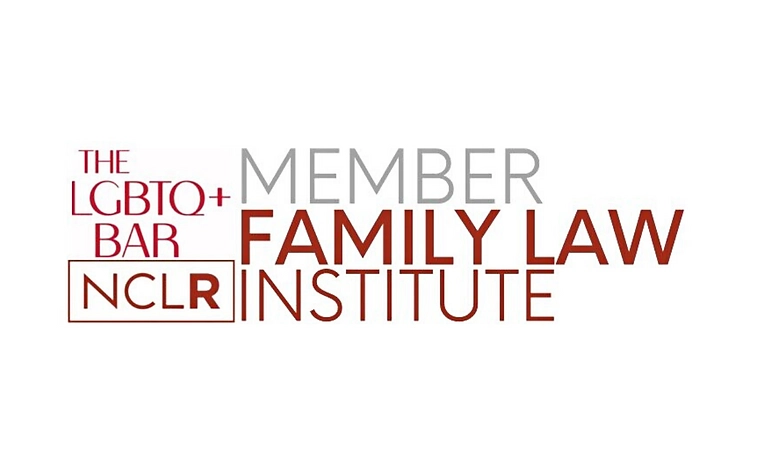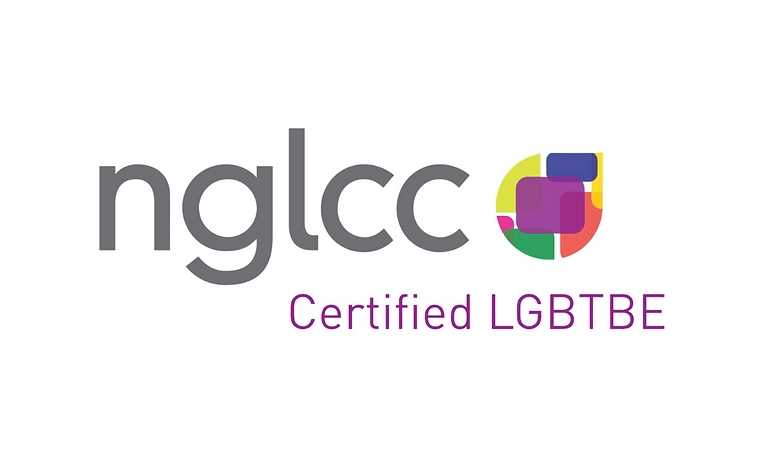LGBTQIA+ Attorney for LGBTQIA+ Estate Planning Matters
- Home
- LGBTQIA + Matters
Supporting and Honoring LGBTQIA+ Rights and Non-traditional Family Relationships in North Carolina
Welcome to the LGBTQIA+ practice at the Law Office of Crystal M. Richardson – where we treat each client as if they were family. We proudly represent clients who identify as a member of the LGBTQIA+ community, with estate planning, estate administration, and heir’s property matters.
Are legal matters with partners, family members, or in-laws keeping you from a calm and secure way of life? Do you fear that in your absence the default laws North Carolina would not carry out your wishes when it comes to who makes financial or medical decisions?
We are personally connected to this area of law, and this is why our firm is passionate about helping those in the LGBTQIA+ community get the legal advice that is needed and specific.
Practice Area
LET OUR LGBTQIA+ and ESTATE PLANNING LAW FIRM HELP TODAY
Don't Let LGBTQIA+ Legal Issues Jeopardize your Individual and Family Estate Planning
We understand that “family” can refer to “non-biological kinship bonds” that include “mutual support and love” and we respect all family dynamics.
Particularly, within the LGBTQIA+ community, “chosen family” may be the ones to offer us the love and mutual support that is not offered from our biological family.
We also understand and appreciate that “family” can extend beyond the traditional nuclear family of “Mom and Dad” to include “Auntie,” “Uncle,” “Cousin,” “Grandma,” and so on.
Non-traditional families might include grandparents raising grandchildren, aunts/uncles raising nieces/nephews, an unmarried couple living together, friends living together to share the cost of living/expenses, long-term couples choosing not to marry, same-gender loving couples, or polyamorous families. Regardless of your family structure, all families deserve and have the right to form legally stable bonds and family ties.
Our legal system is complex and laws are ever-changing and challenges often arise for LGBTQIA+ and non-traditional families to exercise their rights to form legal family bonds and ties.
It is critical that LGBTQIA+ and non-traditional families receive solid legal advice and guidance about their unique family structure to navigate these ever-changing legal systems to protect themselves and the ones they love.
The legal team at the Law Office of Crystal M. Richardson PLLC have worked with the LGBTQIA+ community since 2014. We believe that everyone is entitled to fairness and justice and we have long been advocates for equality and justice for all. We believe that estate planning is necessary for everyone, and particularly those in marginalized groups, including the LGBTQIA+ communities and non-traditional families.

Name Changes and Gender Marker Changes
Our name and how we identify ourselves is critical to one’s dignity and self-respect. At the Law Office of Crystal M. Richardson, we offer legal name and gender marker change services to transgender, gender non-conforming, and non-binary individuals seeking to make their legal identities match their lived experiences.
In North Carolina, a person can change the sex designation on their birth certificate through submitting a sworn statement along with a passport or driver’s license or a certification from a licensed healthcare professional, social worker, or case manager affirming their identity.
In June 2022, a federal court ruled that North Carolinians can now change the gender marker on their birth certificates without having to undergo medical transition surgeries. That means that transgender people no longer need to undergo surgery or medically transition, to get birth certificates that are consistent with their lived experience. This is a huge victory for transgender people born in North Carolina.
At the Law Office of Crystal M. Richardson, PLLC, we are happy to assist you with navigating the legal system to understand what documents you need to file and when, help you overcome challenges, such as your name change being denied, and guide you to understand the next steps when your name change is granted.
North Carolina LGBTQIA+ Estate Planning Law Firm, Collaborative Yet Assertive Legal Counsel
Most clients focus on the day-to-day discomfort of living in an unsafe situation, when the greatest risk is the financial impact a legal dispute or sudden catastrophic event to a loved one would have to themselves and their family. At Law Office of Crystal M. Richardson, PLLC, we understand the immense pressure a legal matter can place on an individual, their partner, and their family at large.
Clients choose the Law Office of Crystal M. Richardson, PLLC, as legal counsel because, together, we share the goal of minimizing the impact of legal issues on one’s life.
We help our individual LGBTQIA+ clients view themselves as more than just parties to a legal matter. Together with them, we weight the available legal options and find the best decisions for them and their family. Don’t delay and let legal issues continue to go unaddressed, this will only further prevent your peace of mind.
Contact the Law Office of Crystal M. Richardson, PLLC today to schedule a no-obligation assessment call.
FAQs
1. Q: Why is estate planning important for LGBTQIA+ individuals?
2. Q: Are there specific challenges LGBTQIA+ individuals may face in estate planning?
3. Q: How can LGBTQIA+ couples protect their parental rights?
4. Q: What happens if a same-gender loving couple does not have a will or estate plan?
5. Q: Can LGBTQIA+ individuals name a non-biological partner as a guardian for their children?
6. Q: How can LGBTQIA+ individuals protect their assets?
7. Q: What legal documents are essential for LGBTQIA+ estate planning?
8. Q: Can LGBTQIA+ individuals appoint a chosen family member as a healthcare proxy?
9. Q: How does marriage impact estate planning for LGBTQIA+ couples?
10. Q: Can LGBTQIA+ individuals disinherit family members in their will?
11. Q: How can LGBTQIA+ individuals change their name or gender marker in North Carolina?
12. Q: Can LGBTQIA+ individuals use a trust to provide for their partner?
13. Q: How can LGBTQIA+ individuals protect their wishes regarding end-of-life decisions?
14. Q: Can LGBTQIA+ individuals name a non-biological partner as a beneficiary on life insurance policies?
15. Q: How can LGBTQIA+ individuals plan for long-term care?
16. Q: What steps should LGBTQIA+ individuals take to update their estate plan after major life changes in North Carolina?
17. Q: How can LGBTQIA+ individuals plan for the care of their pets in their estate plan?
18. Q: Can LGBTQIA+ individuals create an estate plan without outing themselves to family members?





Contact Us
Phone: 336-805-6200
Email: info@CrystalRichardsonLaw.com
Mailing Address
265 Eastchester Drive
Suite 133, #111
High Point, NC 27262
Business Hours
Mon to Thurs: 9 a.m. to 6 p.m.
Fri: 9 a.m. to 3 p.m.
Sat and Sun: Closed